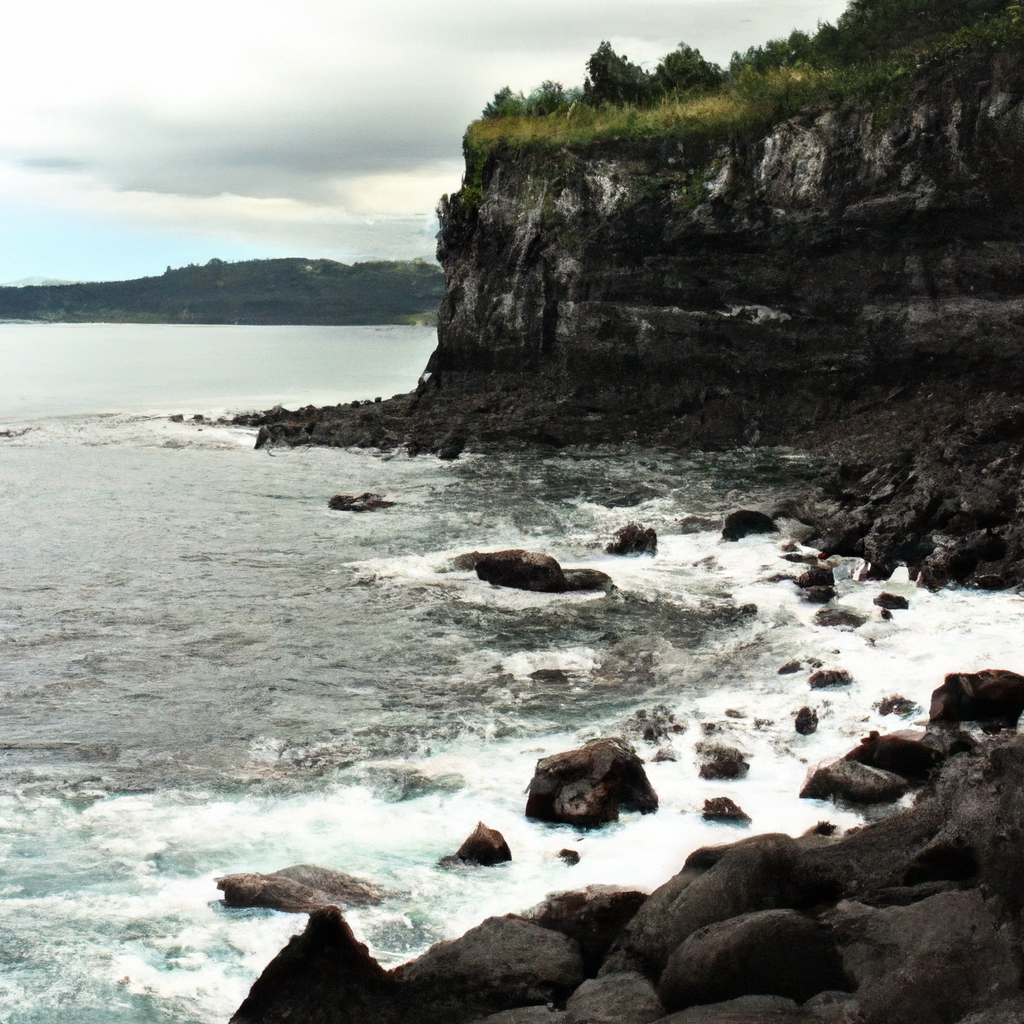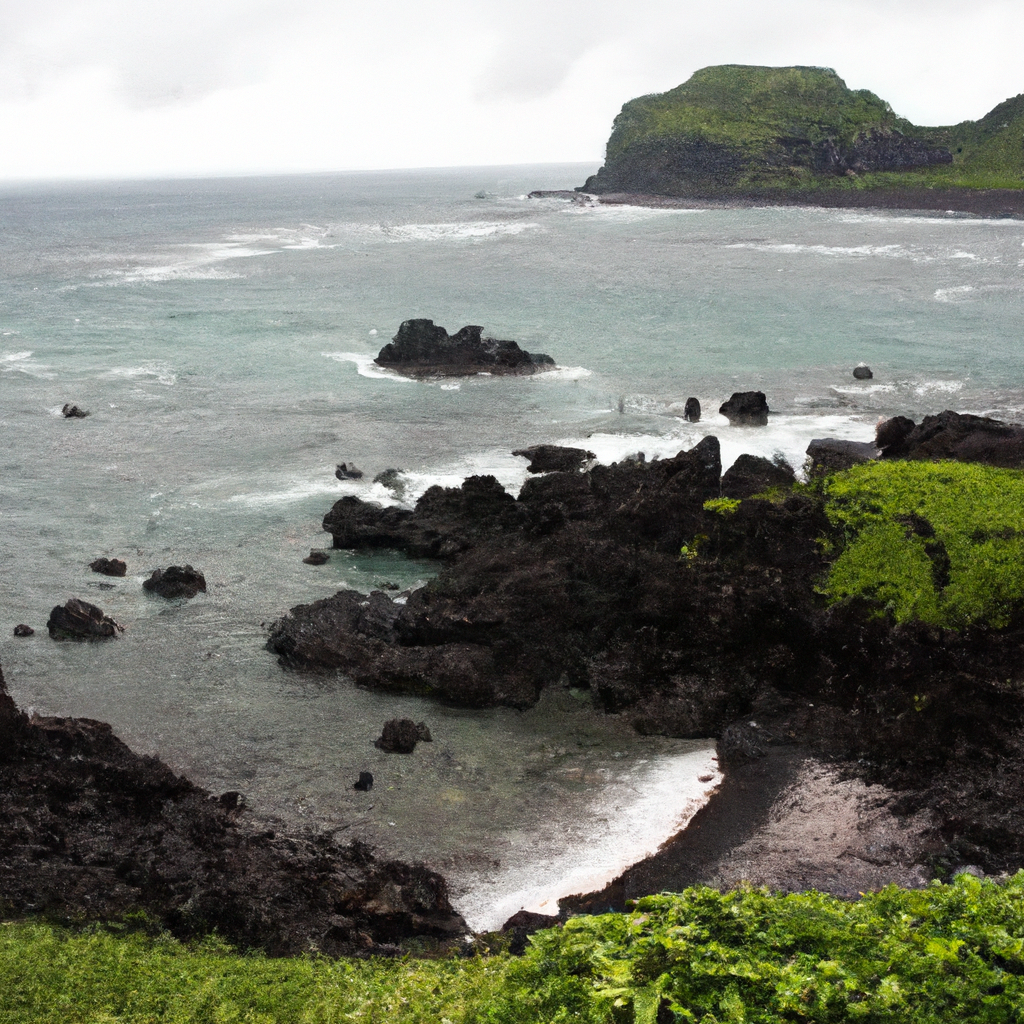Discover the breathtaking beauty of Jeju Island while sitting back and relaxing on a guided bus tour. With its stunning landscapes, pristine beaches, and vibrant culture, Jeju Island has become a must-visit destination for travelers. Embark on this exciting adventure as you explore the iconic Jeju attractions, such as the majestic Seongsan Ilchulbong Peak, the picturesque Hallim Park, and the fascinating stone statues of Yakchunsa Temple. Let the knowledgeable tour guide take you through Jeju’s rich history and hidden gems, ensuring you have a memorable and insightful experience on this captivating island.

Overview of Jeju Island
Jeju Island, also known as the Island of the Gods, is a popular tourist destination located off the southern coast of South Korea. With its stunning natural landscapes, rich cultural heritage, and unique local cuisine, Jeju Island offers a wide range of attractions and activities for visitors. One of the best ways to explore this beautiful island is through a guided bus tour. A guided bus tour not only provides convenient transportation throughout the island but also offers the expertise of experienced tour guides who can share valuable insights and knowledge about the local culture and history. Whether you’re a solo traveler or traveling with a group, a guided bus tour is an excellent choice for discovering all that Jeju Island has to offer.
Benefits of a Guided Bus Tour
Experienced Tour Guide
One of the major benefits of taking a guided bus tour in Jeju Island is having an experienced tour guide by your side. These guides are local experts who know the ins and outs of the island and can provide valuable insights about the history, culture, and attractions of each destination. They are well-versed in multiple languages, ensuring that you can fully understand and appreciate the information they share. They can also answer any questions you may have and provide recommendations based on your interests and preferences. With a knowledgeable tour guide, you can gain a deeper understanding of Jeju Island and make the most of your visit.
Convenient Transportation
Another advantage of a guided bus tour is the convenience of transportation. Jeju Island is relatively large, and traveling from one point to another can be time-consuming and confusing, especially for first-time visitors. By joining a guided bus tour, you can relax and enjoy the journey while the tour operator takes care of all the transportation logistics. The buses are comfortable and equipped with amenities, ensuring a pleasant and stress-free travel experience. You won’t have to worry about navigating unfamiliar roads or finding parking spaces. Instead, you can focus on enjoying the scenic views and immersing yourself in the beauty of Jeju Island.
Pre-planned Itinerary
Planning an itinerary can be overwhelming, especially when visiting a destination with countless attractions like Jeju Island. Thankfully, a guided bus tour comes with a pre-planned itinerary, saving you time and energy. The tour operator has carefully curated a selection of popular tourist spots and local hidden gems, ensuring that you get a well-rounded experience of the island. From iconic landmarks to off-the-beaten-path locations, the itinerary covers a range of attractions to suit all interests. Whether you’re a nature lover, history enthusiast, or foodie, there will be something for everyone. With a pre-planned itinerary, you can make the most of your time in Jeju Island and see the best it has to offer.
Local Insights and Knowledge
One of the unique benefits of a guided bus tour is the opportunity to gain local insights and knowledge. The tour guides are not only knowledgeable but also passionate about Jeju Island and its culture. They can share fascinating stories, legends, and historical facts about each destination, giving you a deeper understanding and appreciation of the island’s heritage. They can also provide insider tips and recommendations, such as the best times to visit certain attractions or where to find the most delicious local cuisine. By joining a guided bus tour, you can tap into the expertise of these local guides and have a more authentic and immersive experience of Jeju Island.

Popular Bus Tour Routes
Jeju Island offers a variety of bus tour routes, each highlighting different parts of the island’s beauty and charm. Here are some of the most popular bus tour routes you can consider:
North Jeju Tour
The North Jeju Tour takes you to the northern part of the island, known for its picturesque landscapes and natural wonders. Highlights of this tour include the iconic Seongsan Ilchulbong, also known as Sunrise Peak, where you can witness breathtaking views of the sunrise over the volcanic crater. The tour also includes a visit to Udo Island, a small island known for its beautiful beaches and tranquil atmosphere. You’ll also have the chance to explore the charming Jeju Folk Village, where you can learn about traditional Jeju culture and architecture.
East Jeju Tour
The East Jeju Tour focuses on the eastern part of the island, which is renowned for its dramatic coastline and natural formations. One of the highlights of this tour is the Seopjikoji, a scenic coastal area famous for its stunning views of the ocean and cliffs. You’ll also visit the Seongsan Sunrise Land, where you can witness the sunrise from a different perspective. Another must-see attraction on this tour is the Manjanggul Cave, one of the longest lava tunnels in the world. Exploring these natural wonders will leave you in awe of Jeju Island’s unique geology and beauty.
South Jeju Tour
The South Jeju Tour takes you to the southern part of the island, where you’ll discover beautiful beaches, waterfalls, and cultural attractions. One of the highlights of this tour is the popular Cheonjiyeon Waterfall, known for its breathtaking beauty and tranquility. You’ll also have the chance to explore the Oedolgae Rock, a picturesque rock formation that overlooks the ocean. Another must-visit destination on this tour is the Jeju Haenyeo Museum, where you can learn about the incredible women divers of Jeju Island and their unique way of life.
West Jeju Tour
The West Jeju Tour allows you to explore the western part of the island, which is known for its stunning cliffs, natural formations, and cultural sites. One of the highlights of this tour is the Jusangjeollidae Cliff, a scenic cliff formation created by lava flows. You’ll also visit the popular Teddy Bear Museum, where you can see a fascinating collection of teddy bears from around the world. Another must-see destination on this tour is the Jeju Stone Park, a beautiful park that showcases various forms of Jeju’s volcanic rocks and their cultural significance.
Tourist Attractions in Jeju Island
Jeju Island is home to numerous tourist attractions that cater to different interests and preferences. From majestic mountains to volcanic craters, here are some of the top attractions in Jeju Island:
Hallasan Mountain
Hallasan Mountain, also known as Mount Halla, is the highest peak in South Korea and a UNESCO World Heritage site. This majestic mountain offers various hiking trails, catering to different levels of difficulty and fitness levels. Whether you’re an experienced hiker or a beginner, you can choose a trail that suits your abilities and enjoy breathtaking views along the way. From the summit, you’ll be rewarded with panoramic views of the entire island, making it a must-visit attraction for nature lovers and adventure enthusiasts.
Seongsan Ilchulbong
Seongsan Ilchulbong, or Sunrise Peak, is a volcanic crater located on the eastern coast of Jeju Island. It is a popular destination for tourists due to its unique formation and stunning views. The peak got its name from the breathtaking sunrise that can be witnessed from the top, making it a favorite spot for early morning hikes. Besides enjoying the natural beauty, you can also learn about the volcanic history and formation of the crater at the Seongsan Ilchulbong Visitor Center. Exploring this iconic landmark will leave you in awe of Jeju Island’s natural wonders.
Manjanggul Cave
Manjanggul Cave is one of the must-visit sites in Jeju Island, especially for those interested in geology and history. This lava tube cave stretches for about 8.6 kilometers and is considered one of the longest in the world. As you walk through the well-maintained pathway inside the cave, you’ll witness fascinating rock formations, lava stalactites, and even a lava column. The cave also has a unique feature called “Stone Turtle,” which is a rock formation resembling a turtle. Exploring Manjanggul Cave is truly a remarkable experience that gives you a glimpse into the island’s volcanic past.
Cheonjiyeon Waterfall
Cheonjiyeon Waterfall, also known as the “Pond of Heaven,” is a stunning waterfall located in Seogwipo City. Surrounded by lush vegetation and cliffs, this 22-meter waterfall is a picturesque sight that attracts visitors from all over the world. The name “Cheonjiyeon” means “Sky Connected with Land,” as it was believed to be the place where celestial nymphs would descend to bathe. You can take a leisurely stroll along the well-maintained walking path, admire the beauty of the waterfall, and enjoy the peaceful ambiance of the surrounding nature.
Loveland
For a unique and slightly unconventional experience, a visit to Loveland is a must. Loveland is an outdoor sculpture park that showcases various erotic and playful sculptures, celebrating the beauty of human love and affection. This adult-themed park is known for its bold and explicit art pieces, making it a popular spot for couples and those curious about human sexuality. The sculptures are created by talented Korean artists, and each artwork tells a different story or expresses a different emotion. With its vibrant and lighthearted atmosphere, Loveland offers a different perspective on art and human relationships.

Cultural Experiences
Jeju Island is not only known for its natural beauty but also for its rich cultural heritage. Here are some cultural experiences you can enjoy during your visit to Jeju Island:
Traditional Folk Village
To get a glimpse of traditional Jeju culture and architecture, a visit to a traditional folk village is a must. The Jeju Folk Village is a well-preserved village that showcases the lifestyle and traditions of the island’s past. As you explore the village, you can admire the thatched-roof houses, stone walls, and beautifully landscaped gardens. You’ll also have the opportunity to witness traditional performances, such as folk dances and music, and try your hand at various traditional crafts. A visit to the traditional folk village will transport you back in time and give you a deeper understanding of Jeju Island’s cultural heritage.
Jeju K-pop Museum
K-pop, or Korean pop music, has gained immense popularity worldwide, and Jeju Island has its own dedicated K-pop museum. The Jeju K-pop Museum is a paradise for K-pop enthusiasts, offering a unique opportunity to learn about the history, success stories, and iconic moments of the K-pop industry. Inside the museum, you’ll find exhibits dedicated to popular K-pop groups, interactive displays, and even a K-pop dance studio where you can try your hand at the choreography of your favorite songs. Whether you’re a die-hard K-pop fan or simply curious about this global phenomenon, a visit to the Jeju K-pop Museum will be an entertaining and enlightening experience.
Jeju Haenyeo Museum
The Jeju Haenyeo Museum is dedicated to preserving the unique culture and traditions of Jeju’s haenyeo, or female divers. These incredible women have been diving for seafood without any diving equipment for centuries, embodying strength, resilience, and a deep connection to the ocean. At the museum, you can learn about the history and techniques of haenyeo diving through informative exhibits. You’ll also have the chance to watch demonstrations and even try on traditional haenyeo attire. Visiting the Jeju Haenyeo Museum offers a fascinating insight into the lives of these remarkable women and their contribution to Jeju Island’s history.
Seogwipo Olle Market
For a taste of local life and to sample some delicious street food, a visit to Seogwipo Olle Market is a must. This bustling market offers a wide variety of local produce, fresh seafood, and street food stalls. From Jeju’s famous black pork to fresh seafood pancakes, there’s something for everyone to enjoy. You can also shop for souvenirs, handmade crafts, and local products, making it a great place to find unique gifts for your loved ones. The vibrant atmosphere of the market, combined with the mouthwatering flavors, makes for an unforgettable cultural experience in Jeju Island.
Sampling Local Cuisine
No visit to Jeju Island is complete without indulging in the local cuisine. Here are some must-try dishes that showcase the flavors and specialties of the island:
Jeju Black Pork
Jeju Black Pork is one of the island’s most famous delicacies and a must-try for meat lovers. The pork comes from a specific breed of black pigs raised on Jeju Island, known for its tender texture and rich flavor. The pork is often marinated and grilled, resulting in a melt-in-your-mouth experience. You can find numerous restaurants and barbecue joints throughout the island that serve Jeju Black Pork, allowing you to savor this local specialty.
Haemul Jeongol
Haemul Jeongol is a hearty seafood stew that is popular in Jeju Island. Made with a variety of fresh seafood, vegetables, and spices, this hot and flavorful dish is perfect for warming up during the colder months. The ingredients are cooked together in a large pot, allowing the flavors to meld together and create a delicious broth. Haemul Jeongol is often enjoyed with a bowl of steamed rice, making it a fulfilling and satisfying meal.
Abalone Porridge
Abalone Porridge, or Jeonbokjuk, is a comforting and nutritious dish that is often considered a Jeju Island specialty. Abalone, a type of shellfish, is cooked with rice to create a creamy and savory porridge. The abalone provides a rich and slightly sweet flavor, while the rice adds a comforting texture. Abalone Porridge is often enjoyed as a breakfast or a light meal, and it is believed to have various health benefits. It’s a dish that perfectly captures the flavors of the sea and is a must-try for seafood lovers.
Jeonbokjuk
Jeonbokjuk is a type of rice porridge made with abalone, a prized ingredient in Jeju Island. The rice and abalone are simmered together until the rice becomes soft and the abalone becomes tender. The result is a creamy and flavorful porridge that is often enjoyed as a comforting breakfast or a light meal. Jeonbokjuk is said to have nourishing properties and is believed to be good for the digestive system. A bowl of Jeonbokjuk is the perfect way to start your day and experience the unique flavors of Jeju Island.

Jeju’s Natural Wonders
Jeju Island is renowned for its stunning natural landscapes and geological formations. Here are some of the top natural wonders you can explore during your visit:
Jusangjeollidae Cliff
Jusangjeollidae Cliff, also known as the “columnar joints,” is a natural wonder that showcases the island’s volcanic history. This incredible cliff formation is made up of hexagonal basalt columns that stretch out into the ocean. The columns were shaped by volcanic eruptions and subsequent cooling, resulting in their unique shape. You can walk along the wooden pathway and admire the breathtaking views of the rocky shoreline and crashing waves. It’s a mesmerizing sight that highlights the beauty and power of nature.
Jeju Teddy Bear Museum
For a delightful and whimsical experience, a visit to the Jeju Teddy Bear Museum is a must. This unique museum is dedicated to teddy bears and their cultural significance. Inside the museum, you’ll find a vast collection of teddy bears from around the world, each with its own story and personality. From miniature bears to life-sized ones, the museum showcases different types, styles, and themes of teddy bears. You can learn about the history and evolution of teddy bears, as well as their impact on popular culture. The museum also has interactive exhibits and photo opportunities, making it a fun and enjoyable experience for all ages.
Jeju Glass Castle
The Jeju Glass Castle is a unique attraction that combines art, glass, and nature. This beautiful park is filled with stunning glass sculptures and installations, creating a magical and ethereal atmosphere. As you wander through the park, you’ll encounter intricate glass dragons, colorful flower displays, and even a glass maze. The gardens are beautifully landscaped, complementing the glass artwork and providing a serene environment to relax and appreciate the beauty around you. The Jeju Glass Castle is a favorite spot for photography enthusiasts and those looking to add a touch of whimsy to their Jeju Island experience.
Jeju Stone Park
Jeju Stone Park is a tranquil and picturesque park that showcases the unique volcanic rocks of Jeju Island. The park features various forms of volcanic rocks, such as stone pillars, stone sculptures, and even stone artwork. As you explore the park, you’ll learn about the cultural significance of these rocks and their role in shaping Jeju Island’s landscape. The park also offers panoramic views of the surrounding countryside and the ocean, making it a great spot to relax and enjoy the natural beauty of the island.
Shopping and Souvenirs
No trip is complete without some shopping and picking up souvenirs to remind you of your time in Jeju Island. Here are some shopping options to consider:
Jeju Traditional Five-day Market
The Jeju Traditional Five-day Market is a bustling and vibrant market that offers a wide range of local products and produce. The market is named after the traditional five-day market, which used to take place every five days in olden times. Here, you can find fresh fruits, vegetables, seafood, and street food stalls serving local delicacies. You can also shop for handmade crafts, souvenirs, and local products like Jeju tangerines, honey, and black pork products. The market provides an opportunity to immerse yourself in the local culture and interact with the friendly vendors.
Jeju Dongmun Market
Jeju Dongmun Market is the largest traditional market on the island and offers an extensive range of products and goods. From fresh seafood and local produce to clothing, electronics, and crafts, you can find almost anything you’re looking for at this bustling market. The market is also known for its vibrant atmosphere and delicious street food stalls, where you can sample local favorites like tteokbokki, hotteok, and grilled skewers. Jeju Dongmun Market is a great place to shop for souvenirs, indulge in local cuisine, and experience the lively energy of a traditional Korean market.
Yegrina Resort
If you’re looking for a more upscale shopping experience, Yegrina Resort is the place to go. Located in the heart of Jeju City, this resort offers a luxurious shopping complex where you can find high-end brands, designer boutiques, and trendy fashion stores. The resort also features art galleries, cafes, and restaurants, allowing you to take a break and relax between shopping sprees. Yegrina Resort offers a different shopping experience from the traditional markets, catering to those who prefer luxury and exclusive brands.
Duty-Free Shops
For those looking to take advantage of duty-free shopping, Jeju Island has several duty-free shops available. These shops offer a wide range of products, including cosmetics, perfumes, electronics, and luxury goods, at tax-free prices. The staff at the duty-free shops are multilingual and can assist you in finding the right products and brands to suit your preferences. Whether you’re looking to treat yourself or buy gifts for your loved ones, the duty-free shops in Jeju Island provide a convenient and tax-free shopping experience.

Tips for a Guided Bus Tour in Jeju
Taking a guided bus tour in Jeju Island can enhance your overall travel experience. Here are some tips to make the most out of your guided bus tour:
Booking in Advance
To secure your spot on a guided bus tour, it’s recommended to book in advance, especially during peak tourist seasons. By booking ahead, you’ll have more options for tour dates and itineraries. It’s also a good idea to check the tour company’s cancellation policy, just in case your plans change or unforeseen circumstances arise.
Wear Comfortable Clothing
As you’ll be spending a significant amount of time on the bus and exploring various attractions, it’s important to wear comfortable clothing and footwear. Opt for lightweight and breathable fabrics that will keep you cool and relaxed throughout the day. It’s also a good idea to bring a light jacket or sweater, as the weather in Jeju can be unpredictable at times.
Pack Essentials
When going on a guided bus tour, it’s essential to pack a few essentials to ensure a comfortable and enjoyable experience. Some items to consider bringing include sunscreen to protect your skin from the sun’s rays, a reusable water bottle to stay hydrated, a hat or cap to shield yourself from the sun, and a small backpack to carry your belongings. It’s also recommended to bring some cash for any additional expenses or purchases during the tour.
Follow the Guide’s Instructions
Throughout the guided bus tour, it’s important to listen to and follow the instructions of the tour guide. They are there to ensure your safety and provide valuable information about each destination. Pay attention to the meeting times and locations, as well as any specific guidelines or restrictions. By following the guide’s instructions, you can have a smoother and more enjoyable experience during your tour.
Conclusion
Exploring Jeju Island through a guided bus tour is an excellent way to discover the island’s natural beauty, cultural heritage, and unique flavors. With knowledgeable tour guides, convenient transportation, and pre-planned itineraries, you can make the most of your time in Jeju and create unforgettable memories. From the iconic landmarks like Hallasan Mountain and Seongsan Ilchulbong to the vibrant markets and mouthwatering local cuisine, Jeju Island has something for everyone. So, hop on a guided bus tour and embark on a journey of discovery and adventure in the beautiful Island of the Gods.

